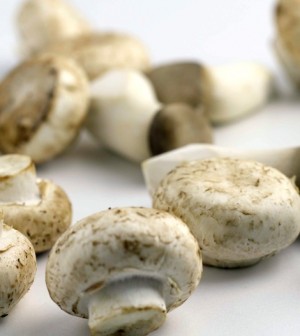- Could Your Grocery Store Meat Be Causing Recurring UTIs?
- Are You Making This Expensive Thermostat Error This Winter?
- Recognizing the Signs of Hypothyroidism
- 10 Strategies to Overcome Insomnia
- Could Artificial Sweeteners Be Aging the Brain Faster?
- Techniques for Soothing Your Nervous System
- Does the Water in Your House Smell Funny? Here’s Why
- Can a Daily Dose of Apple Cider Vinegar Actually Aid Weight Loss?
- 6 Health Beverages That Can Actually Spike Your Blood Sugar
- Treatment Options for Social Anxiety Disorder
Healthy Fats Can Help Prevent Type 2 Diabetes: Study

Eating more healthy fats, like nuts, seeds and vegetable oils, while limiting animal fats and refined carbohydrates, can help prevent or control type 2 diabetes, new research suggests.
The large study found these dietary changes can lower blood sugar levels and improve insulin sensitivity.
“The world faces an epidemic of insulin resistance and diabetes. Our findings support preventing and treating these diseases by eating more fat-rich foods like walnuts, sunflower seeds, soybeans, flaxseed, fish and other vegetable oils and spreads, in place of refined grains, starches, sugars and animal fats,” said study co-leader Dr. Dariush Mozaffarian. He is dean of the Friedman School of Nutrition Science and Policy at Tufts University in Boston.
“This is a positive message for the public. Don’t fear healthy fats,” Mozaffarian said in a university news release.
Researchers analyzed results of 102 trials including 4,660 adults to evaluate how different types of dietary fat and carbohydrates affected key risk factors for type 2 diabetes.
The analysis, published July 19 in PLOS Medicine, involved studies that provided participants with meals with different amounts of saturated, monounsaturated and polyunsaturated fats and carbohydrates. The researchers assessed how these dietary differences affected measures of metabolic health, including blood sugar and insulin levels, as well insulin sensitivity and production.
Following a diet rich in monounsaturated or polyunsaturated fat instead of meals high in carbohydrates or saturated fat helps improve blood sugar control, the researchers found.
Previous studies have estimated that each 0.1 percent drop in HbA1C — an indicator of long-term blood sugar control — could reduce the incidence of type 2 diabetes by 22 percent and heart disease by 6.8 percent, the researchers said.
“Among different fats, the most consistent benefits were seen for increasing polyunsaturated fats, in place of either carbohydrates or saturated fat,” said the study’s first author, Fumiaki Imamura, of the Medical Research Council Epidemiology Unit at the University of Cambridge in England.
The study authors said their findings should help inform doctors and patients about the effects of diet on metabolic health and the risk for type 2 diabetes.
“Until now, our understanding of how dietary fats and carbohydrates influence glucose, insulin and related risk factors has been based on individual studies with inconsistent findings,” Imamura said. “By combining results from more than 100 trials, we provide the strongest evidence to date on how major nutrients alter these risks.”
More information
The U.S. National Institute of Diabetes and Digestive and Kidney Diseases provides more information on how to prevent type 2 diabetes.
Source: HealthDay
Copyright © 2026 HealthDay. All rights reserved.










